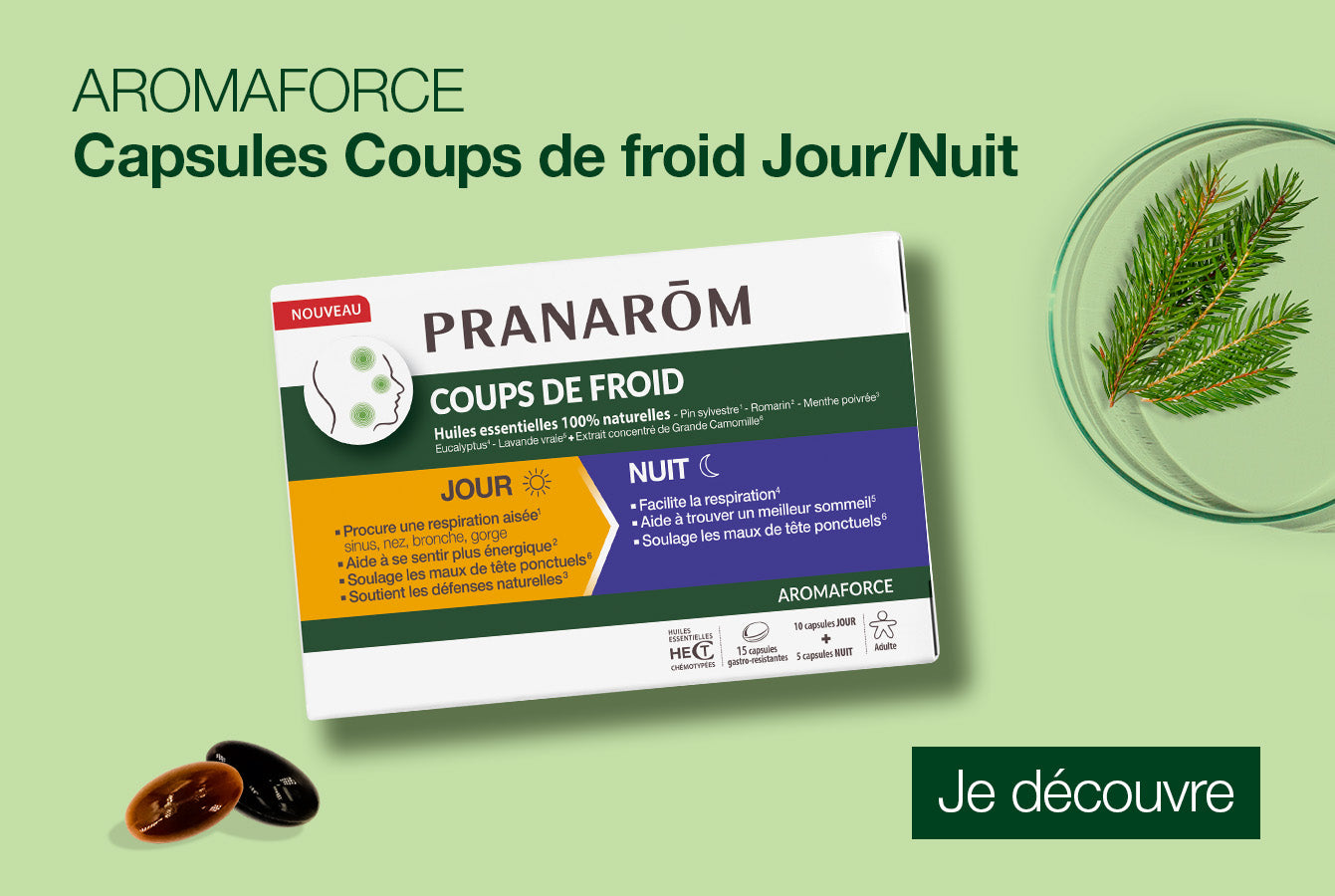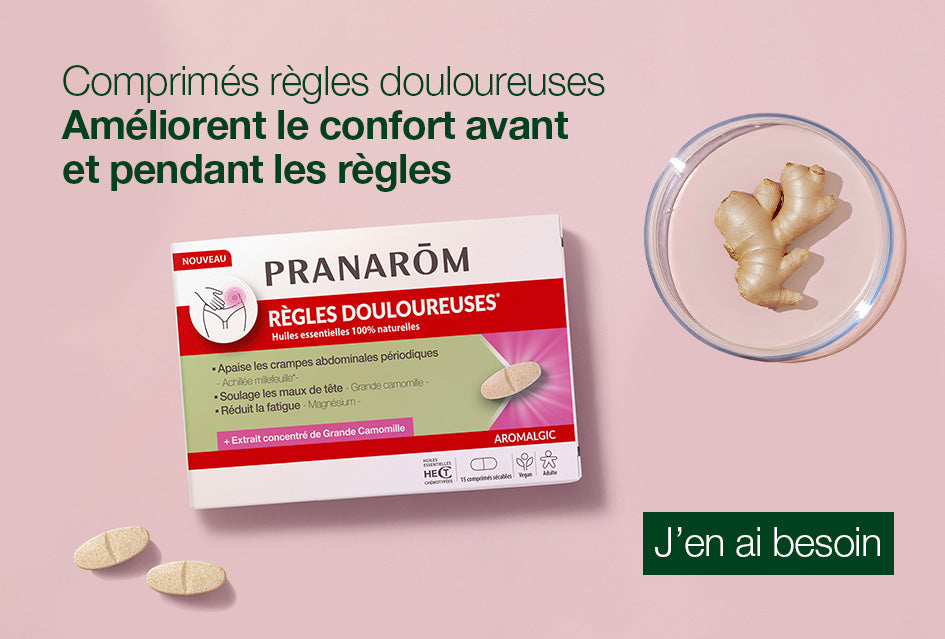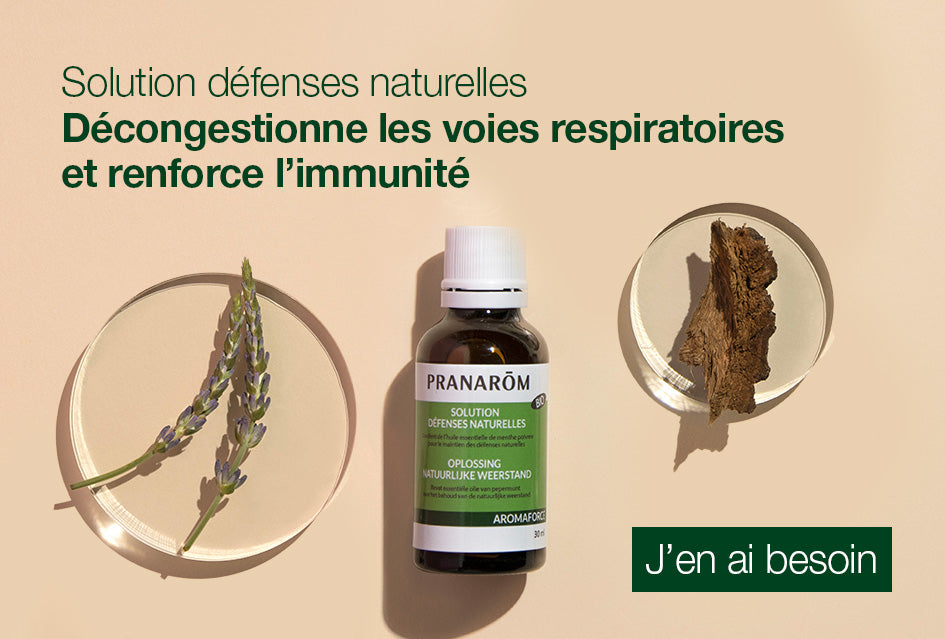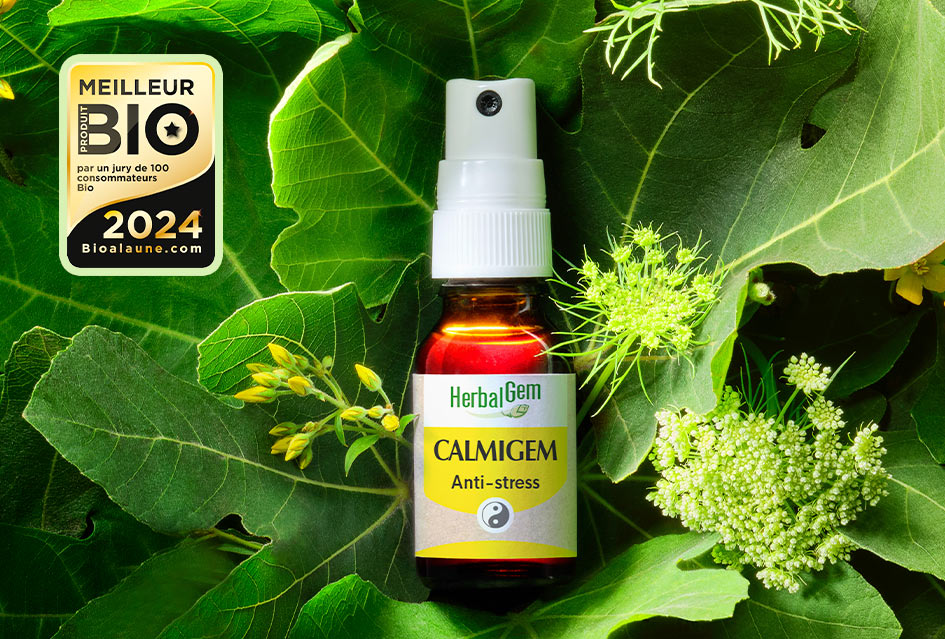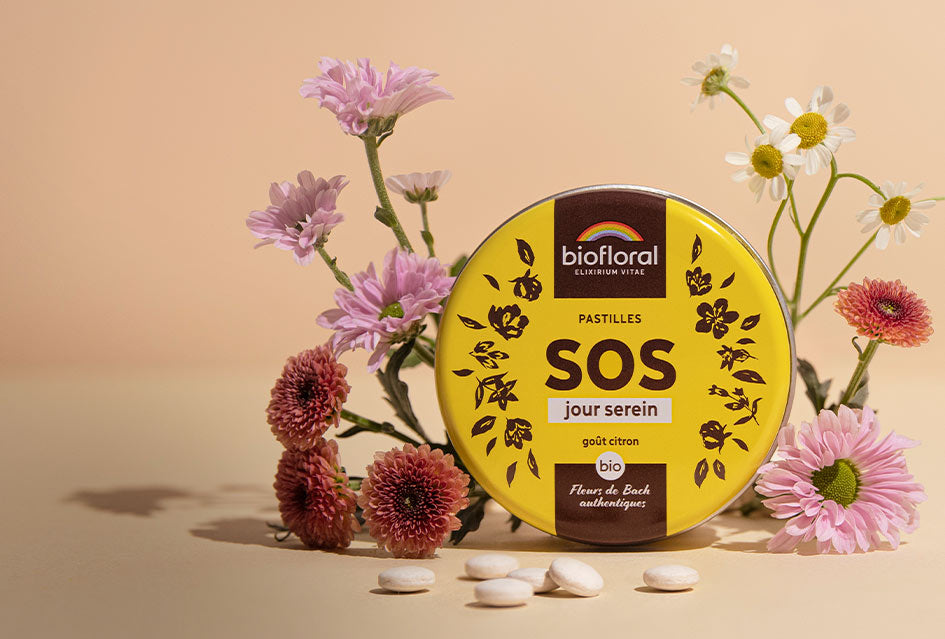Did you know that among the most common symptoms of COVID-19 (fever, cough, aches and pains, etc.), a European study revealed that 85% of patients suffering from a mild form of the infection complained of problems with their sense of smell and 89% complained of a change in taste. Want to find out more about loss of smell (= anosmia) and essential oils?A few years ago we heard a lot about the COVID-19 virus. As we said above, according to a European study, 84.8% of patients with COVID suffer from loss of smell, but 50% of them regain their sense of smell spontaneously within the first 15 days. For the others, it is important to act quickly after the onset of the disease to fully regain your senses.
Anosmia: what it isTo begin this article, let's take a closer look at a little-known but much-used word this year: "anosmia". Anosmia is when you lose your sense of smell completely, and hyposmia is when you lose part of your sense of smell.
In the case of taste, dysgeusia or even agueusia occurs when there is a total loss of this sense. Anosmia, whether or not associated with dysgeusia, appears to be a frequent symptom in cases of infection with the SARS-CoV-2 responsible for COVID-19 (Reinhard et al. 2020).
Treatment options
According to one study, topical and systemic corticoids and nasal rinses are contraindicated, and although in most cases the natural course of anosmia appears to be favourable (Reinhard et al. 2020), "olfactory training" represents an effective therapeutic alternative.
According to studies, this type of re-education, carried out over 4 to 5 months (preferably using strong, highly concentrated odours), can improve the sense of smell in over 60 to 70% of patients suffering from post-infectious anosmia.Recovering the sense of smell with essential oils?
This anosmia (= loss of smell) is a symptom that generally lasts only 1 to 2 weeks. However, it can last longer, even several months for the less fortunate. Olfactory re-education is a technique that has been validated for post-infectious anosmia since 2014 and recommended by learned societies to speed up recovery, with almost 63% improvement in anosmia, Fabrice Denis points out. In fact, according to this protocol published by "the laryngoscope" in 2014, it is relevant to practise olfactory re-education using scents. However, this scientific study was carried out long before COVID-19 and used a variety of smells rather than essential oils.
Problems with the sense of smell must be taken very seriously and without delay. That's why the anosmie.org association, with its work and expertise in the field, wanted to lend its full support to the development of this olfactory re-education support tool," says Jean-Michel Maillard.
The protocol, validated by Professor Morinière, head of the ENT department at Tours University Hospital, is based on the use of essential oils and more specifically on the inhalation twice a day of 4 specific Essential Oils until recovery and for a maximum of 16 weeks.
A scientific evaluation of the data of users who agree to take part in a non-nominative clinical study will be carried out. It will validate the rate and speed of recovery of the sense of smell in this particular indication linked to COVID-19.
>Which essential oils are recommended?
It is important to choose 4 essential oils with 4 different olfactory profiles, from among those we recommend:
Floral
- Lavender;
- Rose Geranium.
Fresh Herbaceous
- Eucalyptus;
- Peppermint.
Fruity
- Lemon ;
- Mandarin.
Woody
- Atlas Cedar;
- Scots Pine.
- Clove;
- Fennel.
Spicy
It's easy to use, and you don't need to know much about aromatherapy - just follow this simple daily routine:
Soak an aromastick with 5 drops of Essential Oil. It is important to change the aromastick for each Essential Oil and to refill it every 2 weeks.
Take 2 deep breaths of each essential oil per nostril, 2 times a day. Preferably in the morning on an empty stomach and in the evening before meals and mealtimes. Continue this "treatment" for a minimum of 3 weeks and a maximum of 4 months.
Reinforce this protocol by diffusing essential oils using a diffuser.
References
Reinhard, A., Ikonomidis, C., Broome, M., and Gorostidi, F. (2020). Anosmia and COVID-19. Revue medicale suisse, 16(691-2), 849-851.
Rahban, C., Ailianou, A., Jacot, E., and Landis, B. N. (2015). Anosmia and agueusia: about a case report. Rev Med Suisse, 1787-90
Hummel, T., Landis, B. N., and Hüttenbrink, K. B. (2011). Smell and taste disorders. GMS current topics in otorhinolaryngology, head and neck surgery, 10
Deems, D. A., Doty, R. L., Settle, R. G., Moore-Gillon, V., Shaman, P., Mester, A. F., ... and Snow, J. B. (1991). Smell and taste disorders, a study of 750 patients from the University of Pennsylvania Smell and Taste Center. Archives of otolaryngology-head and neck surgery, 117(5), 519-528
Lechien, J. R., Chiesa-Estomba, C. M., De Siati, D. R., Horoi, M., Le Bon, S. D., Rodriguez, A., ... et Chekkoury-Idrissi, Y. (2020). Dysfonctionnements olfactifs et gustatifs comme présentation clinique des formes légères à modérées de la maladie à coronavirus (COVID-19) : une étude européenne multicentrique. Archives européennes d'oto-rhino-laryngologie, 1-11.
Giacomelli, A., Pezzati, L., Conti, F., Bernacchia, D., Siano, M. et Oreni, L. (2020). Self-reported olfactory and taste disorders in SARS-CoV-2 patients : a cross-sectional study [publié en ligne le 26 mars 2020]. Clin Infect Dis.
Lueers, J. C., Klußmann, J. P., et Guntinas-Lichius, O. (2020). La pandémie de Covid-19 et l'oto-rhino-laryngologie : What it comes down to ? Laryngo-rhino-otologie.
Hopkins C, Kumar N. (2020). Loss of sense of smell as marker of COVID-19 infection (Perte de l'odorat comme marqueur de l'infection par COVID-19). ENT UK. https://www.entuk.org/sites/default/ files/files/Loss of sense of smell as marker of COVID.pdf.
Vaira, L. A., Hopkins, C., Petrocelli, M., Lechien, J. R., Chiesa-Estomba, C. M., Salzano, G., ... et Biglioli, F. (2020). Récupération de l'odorat et du goût chez les patients atteints de la maladie à coronavirus 2019 : une étude objective et prospective à 60 jours. The Journal of Laryngology and Otology, 134(8), 703-709.


